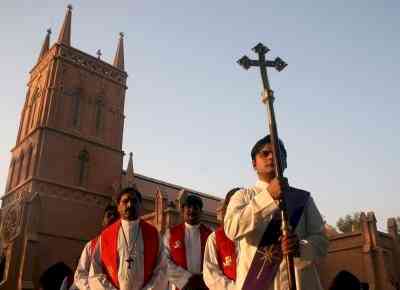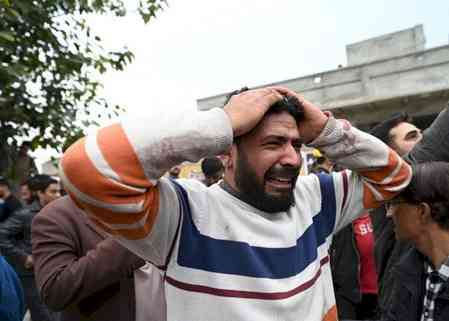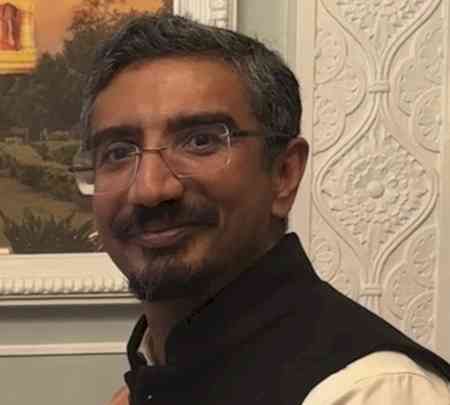Two years after Jaranwala attacks, Pakistan's Christians still await justice
The Christian minority in Pakistan — just 1.6 per cent of the population — continues to endure systemic persecution and marginalisation, a report cited on Friday.

Karachi, Aug 29 (IANS) The Christian minority in Pakistan — just 1.6 per cent of the population — continues to endure systemic persecution and marginalisation, a report cited on Friday.
Even two years after the deadly Jaranwala attack in Punjab province, during which a mob, incited by blasphemy allegations, destroyed 26 churches and over 80 homes - one of the worst anti-Christian attack in Pakistan's history - not a single conviction has been secured, writes Dimitra Staikou in news outlet Defence Net.
Christians seeking justice for the August 16, 2023 attacks continue to face intimidation, while Pakistan’s controversial blasphemy laws — often weaponised through false accusations — remain a tool of oppression, the report said.
Ranked eighth on Open Doors' 2025 World Watch List, Pakistan remains one of the most difficult places in the world to live as a Christian.
Despite the odds, some Pakistanis have embraced Christianity, but their numbers are dwindling as the country moves toward increasing religious homogenisation. The threat to their safety is not abstract — it is lived daily.
Though executions are rare, the mere accusation can provoke deadly mob violence.
On June 4, 2025, an anti-terrorism court in Faisalabad acquitted 10 individuals accused of torching a church and looting a Christian home.
The plaintiff’s lawyer blamed police negligence, and similar outcomes are expected in related cases. Meanwhile, Christian women and girls—especially those poor or disabled — face rising incidents of abduction, rape, and forced conversion, often with impunity.
Amnesty International reports that of the 5,213 suspects arrested in the Jaranwala riots, only 380 were detained. The rest were released.
A year later, 228 were granted bail and 77 acquitted. “Despite promises of accountability, the authorities’ failure has fostered a climate of impunity,” said Babu Ram Poudel, Amnesty’s Deputy Regional Director for South Asia.
On August 16, 2025, Christians gathered in Jaranwala to protest the lack of justice. The Victims’ Committee condemned the government’s inaction and warned of efforts to divide the community.
“We are extremely disappointed,” said coordinator Lala Robin Daniel. “We call on all Christians to hold peaceful sit-ins and use social media to demand justice.”
Samson Salamat, president of Rawadari Tehreek, criticised both government officials and opportunistic individuals within the Christian community.
“Even the Punjab minister who calls minorities ‘the jewel in the crown’ has not visited Jaranwala,” he lamented.
Outside the Lahore Press Club, activists Ghazala Shafique and Luke Victor demanded strict punishment for the perpetrators.
“Jaranwala is a reminder of the deep-rooted intolerance Christians face,” they said. Michelle Chaudhry, president of the Cecil and Iris Chaudhry Foundation, emphasized the misuse of blasphemy laws.
“No Christian would dare commit blasphemy,” she said. “But the failure of institutions to protect citizens has been laid bare. We urge the government to deliver justice and fulfill its promises of rehabilitation and support.”
Blasphemy charges in Pakistan remain a volatile issue. While death sentences are rarely executed, the accusations themselves often incite violence. The situation demands urgent international attention.
A multi-pronged approach is essential; reforming blasphemy laws, ensuring judicial accountability, and launching education campaigns to combat religious prejudice. Empowering Christian communities — especially women and children — through economic and social support, alongside international advocacy and grassroots mobilisation, is vital for securing their future and dignity in Pakistan.
--IANS
sktr/as



 IANS
IANS 










